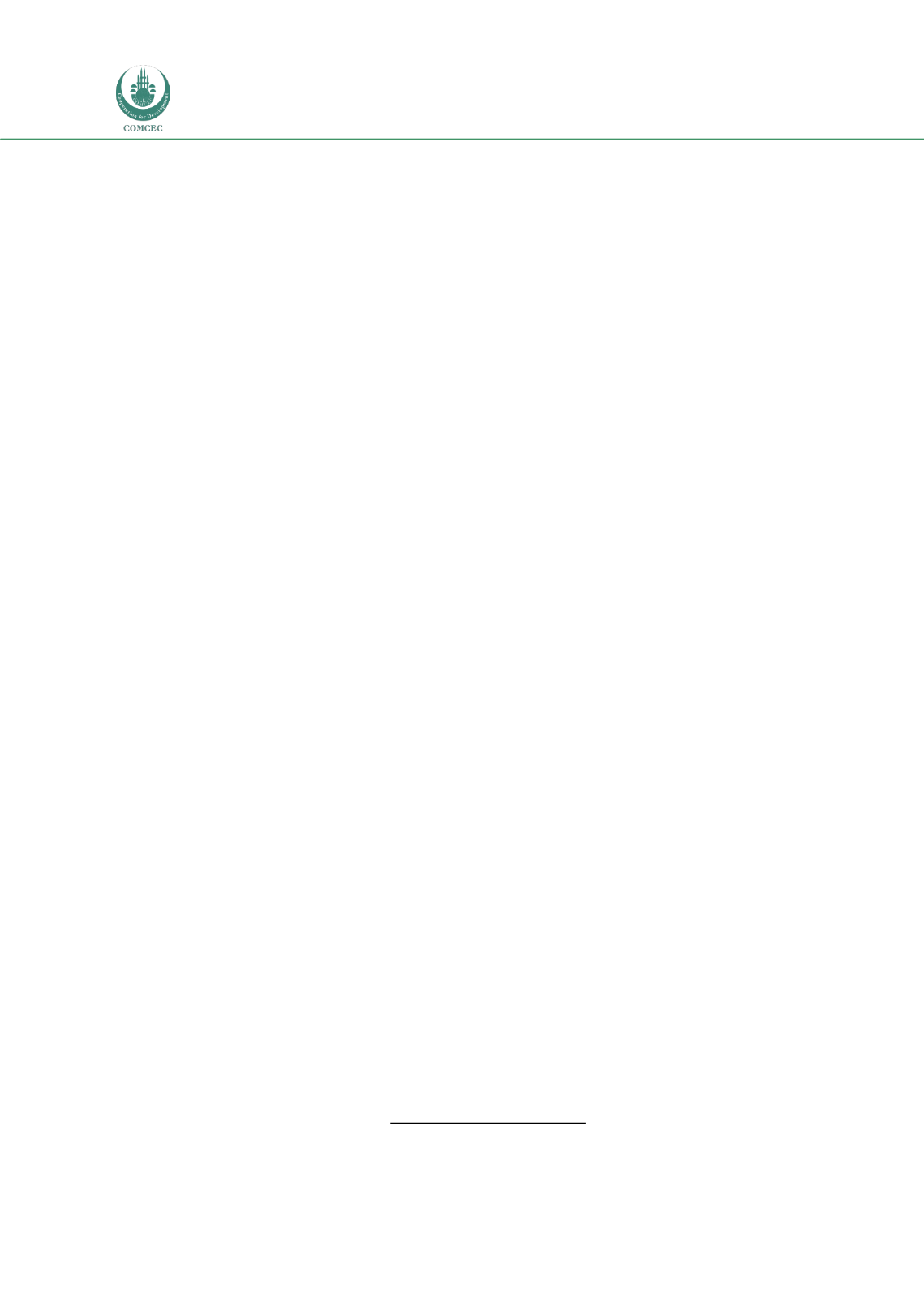

Muslim Friendly Tourism (MFT):
Understanding the Supply and Demand Sides
In the OIC Member Countries
88
may be due the perception that UAE as a whole is Muslim friendly and as such there is no
necessity to particularly develop Muslim centric products.
As for the outbound market, a number of small and big players have been developing products.
Dnata, one of the biggest travel operators in UAE, announced in October 2015 that it is
launching a series of Muslim friendly tour packages to different parts of the world. Deborah
Bevan, Manager of Gulf Ventures which became part of Dnata in 2006, mentioned that
they
offer a comprehensive range of leisure services, to the Muslims outbound market.
Irfan Ahmad, CEO and founder of
Irhal.com,which is a travel platform targeting the Muslim
market, mentioned
that online travel agents are gaining market share in the UAE. He mentions
the following;
-
Though offline agents account for the overwhelming majority of transactions across all
categories of the travel and tourism market in the UAE, online agents continue to record
strong levels of growth.
-
By using social media and the internet and companies do not only promote their
products, but also increasingly, encourage purchases by offering promotions and deals
only available online.
-
Given the high level of penetration of the internet and social media in the UAE, online
sales are expected to continue to grow.
f)
Human Capital
As in all other OIC member states, there has not been a comprehensive training approach to
travel industry to cater to the MFT market.
g)
Destinations
The UAE’s tourism industry continues to benefit from the country’s political stability. As a
whole destination, UAE is considered a very Muslim friendly destination. It is ranked no. 3 in
the Global Muslim Travel Index 2015.
Focused efforts to develop the Muslim tourist market remains strong through the “Dubai the
Islamic Economy Capital” initiative. By 2020 the percentage of Muslim visitors would be 61.2
percent of the total inbound tourism into the country. The political problems in some key
regional tourist destinations is resulting in a significant increase in the number of visitors to
the UAE as traditional visitors to those regional destinations increasingly choose the UAE as an
alternative destination for their holidays.
Strengths and challenges for the UAE’s MFT segment
From a MFT point of view, the launching of UAE’s launching of its “Capital of the Islamic
Economy” initiative in 2013 will strengthen its position. The initiative is based on 7 verticals.
One of them is “Family Travel”, which is a positioning that has been taken to cover MFT as well.
The Dubai Islamic Economy website
(http://www.iedcdubai.ae/)states the following:
















